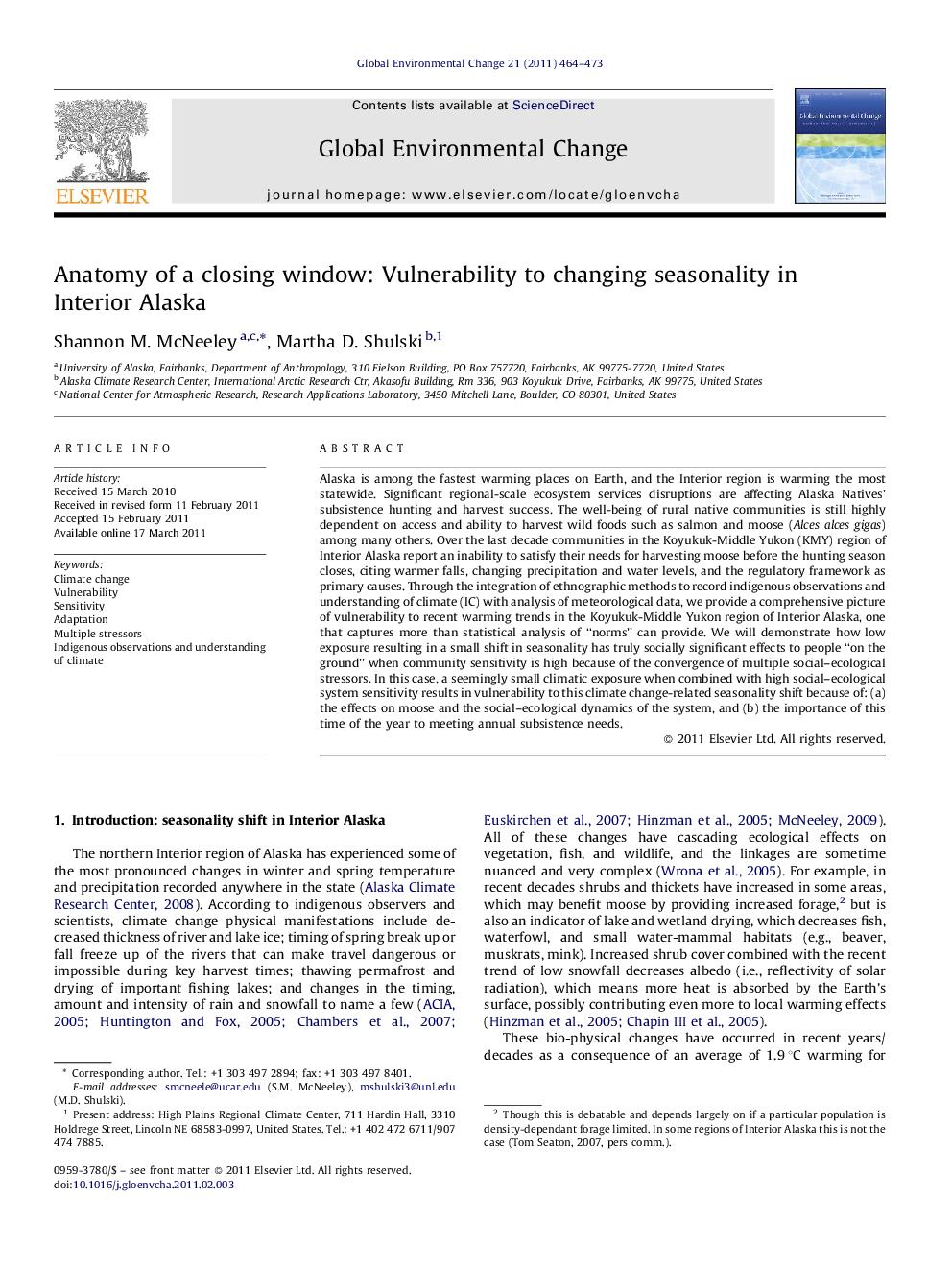| Article ID | Journal | Published Year | Pages | File Type |
|---|---|---|---|---|
| 1054931 | Global Environmental Change | 2011 | 10 Pages |
Alaska is among the fastest warming places on Earth, and the Interior region is warming the most statewide. Significant regional-scale ecosystem services disruptions are affecting Alaska Natives’ subsistence hunting and harvest success. The well-being of rural native communities is still highly dependent on access and ability to harvest wild foods such as salmon and moose (Alces alces gigas) among many others. Over the last decade communities in the Koyukuk-Middle Yukon (KMY) region of Interior Alaska report an inability to satisfy their needs for harvesting moose before the hunting season closes, citing warmer falls, changing precipitation and water levels, and the regulatory framework as primary causes. Through the integration of ethnographic methods to record indigenous observations and understanding of climate (IC) with analysis of meteorological data, we provide a comprehensive picture of vulnerability to recent warming trends in the Koyukuk-Middle Yukon region of Interior Alaska, one that captures more than statistical analysis of “norms” can provide. We will demonstrate how low exposure resulting in a small shift in seasonality has truly socially significant effects to people “on the ground” when community sensitivity is high because of the convergence of multiple social–ecological stressors. In this case, a seemingly small climatic exposure when combined with high social–ecological system sensitivity results in vulnerability to this climate change-related seasonality shift because of: (a) the effects on moose and the social–ecological dynamics of the system, and (b) the importance of this time of the year to meeting annual subsistence needs.
► We analyze vulnerability to climate change in remote, rural Interior Alaska. ► We incorporate indigenous observations and understanding of climate with instrumental weather data. ► We find that low exposure to climate change combined with high social–ecological sensitivity result in vulnerability. ► Recent warm falls and precipitation changes affect moose harvest success and community food security.
